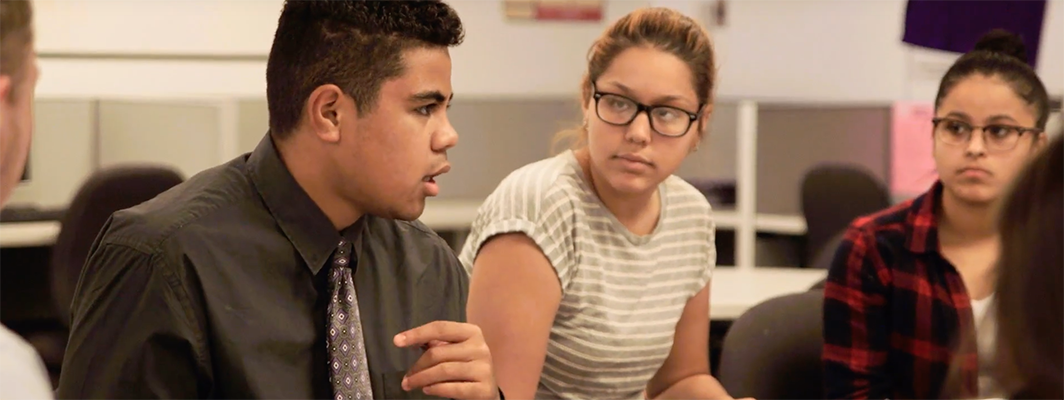
As lead teacher for the Education Professions program at WHS, located in a working-class, largely immigrant Phoenix neighborhood, I encounter many students who are facing challenging circumstances outside of their school lives. Since we are training the next generation of our nation’s educators, the role of the Education Professions teacher is critical for a number of reasons. Considering the context of WHS, for me specifically, I must instill in my students that their goals are possible with the right support and focus.
In our program, we believe that “education is the great equalizer,” and we strive each day to take an additional step toward making that sentiment real for students.
The WHS Education Professions curriculum covers a two-year program that allows students to discover and experience the rich rewards and challenges of being a professional educator. When students enter our program, they spend the majority of their first year exploring the many different characteristics of an effective educator through a 35-hour internship program that links them with a mentor teacher from Maryland School, a neighboring elementary school.
During their second year, students spend the entire school year with the same mentor teacher. The interns work more than 90 hours with their mentor and their students throughout the school year. As a result, they are able to develop an understanding of what it takes to be a part of this profession and lead students in daily powerful learning.
Recently, I integrated the Beginning to Teach micro-credentials into our second-year student sequence. Students begin by working on micro-credentials that require classroom observations, Classroom Culture and Anti-bias Instruction. Through observations of their mentor teachers, students are able to think analytically about how an educator’s actions can create a classroom environment that promotes community and encourages student learning.
The primary reason I decided to include micro-credentials in WHS’ program is that they make clear how valuable the skill of reflection is to being an effective educator — something I wished I knew at the beginning stages of my teaching career.
Through critical reflection, students, and seasoned educators for that matter, can take note on their actual teaching practices and strategize on how to improve them to increase student learning. As students progress through their second year, they begin to work with micro-credentials that require them to teach and record lessons and then reflect on their teaching practices through video.
The Beginning to Teach micro-credentials has truly elevated our program. Before micro-credentials, we always practiced task analysis and lesson reflection; however, we never embarked on the more advanced step of having our students videotape a lesson and analyze it. Through the conversations that follow, my high school students are made aware of their actual teaching practices to begin the process of refining their teaching techniques to best center student learning.
It is phenomenal to watch a high school senior analyze their teaching practices and make the necessary adjustments to improve student learning. I’m excited to see how micro-credentials continue to enhance our Education Professions program at Washington High School and prepare our students for the next phase of their journeys towards becoming highly reflective and highly effective professional educators.
Learn more about the Beginning to Teach micro-credentials here and Educators Rising here.